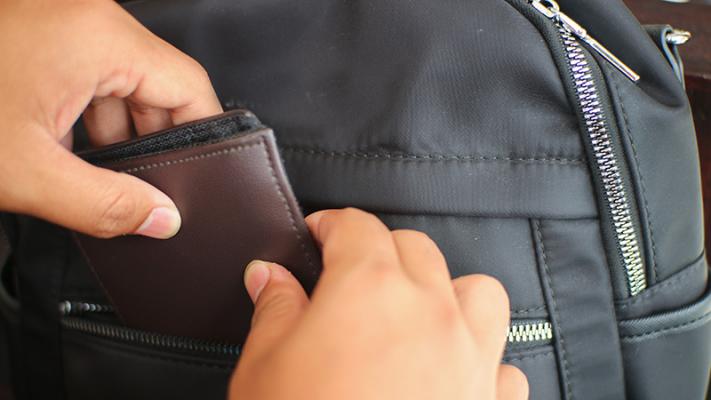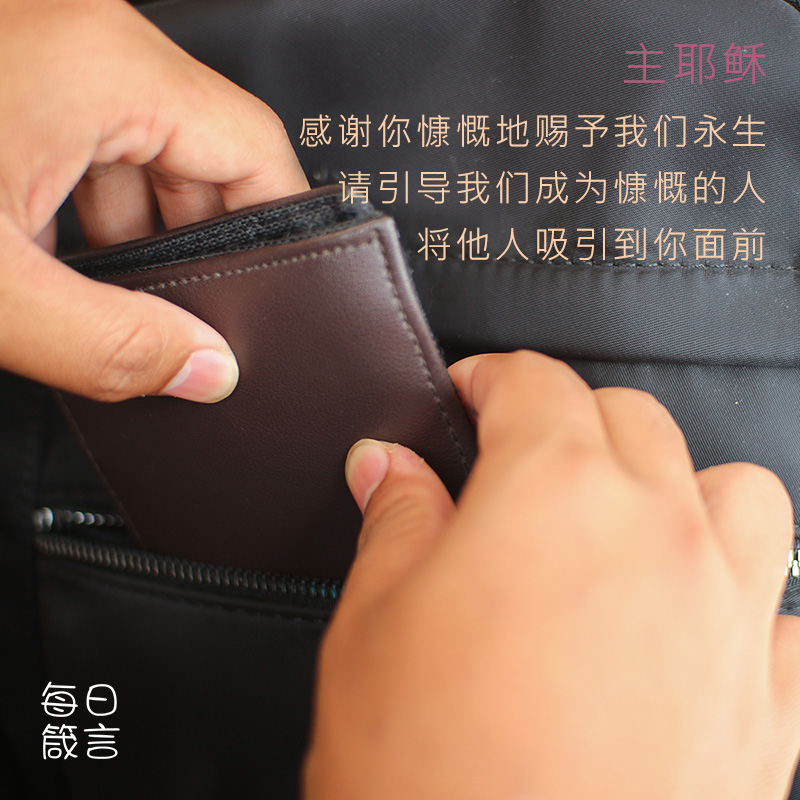

人人都知道偷窃的意思。在各种文化中,偷窃都被认为是可耻和不被接受的。在我所在的地方,小偷如果被抓住,还可能会被愤怒的暴徒殴打。其他国家的情况可能有所不同,但对小偷的判决往往都是严厉和负面的。
圣经教导我们,偷窃不仅限于故意从他人那里拿走东西。在旧约中,神明确指出,偷窃不仅是指拿走金钱或物品,还包括剥夺他人本应得到的金钱或帮助。偷窃有多种形式:克扣工人的工资、不交什一奉献、剥夺穷人、寡妇或孤儿所需要的帮助。
偷窃有主动和被动之分。主动偷窃是可耻的,很少有人会这样做。但谁又能说自己没有被动偷窃呢?我们喜欢把帮助穷人、囚犯、病人、客旅以及更多的人看作是施舍,而不是一种义务或对正义的呼唤。但保罗提醒我们,我们所赚取的财富不仅仅是为了我们的家庭;神呼召我们慷慨地对待有需要的人。
谁是你生命中最慷慨的人?他们有哪些特质和价值观?我们怎样才能以有创意的方式与他人分享呢?
主耶稣,感谢你慷慨地赐予我们永生。请引导我们成为慷慨的人,将他人吸引到你面前。阿们。

路加福音 10:25-37
25有一个律法师起来试探耶稣,说:“夫子,我该做什么才可以承受永生?”
26耶稣对他说:“律法上写的是什么?你念的是怎样呢?”
27他回答说:“你要尽心、尽性、尽力、尽意爱主你的神,又要爱邻舍如同自己。”
28耶稣说:“你回答的是。你这样行,就必得永生。”
29那人要显明自己有理,就对耶稣说:“谁是我的邻舍呢?”
30耶稣回答说:“有一个人从耶路撒冷下耶利哥去,落在强盗手中。他们剥去他的衣裳,把他打个半死,就丢下他走了。
31偶然有一个祭司从这条路下来,看见他,就从那边过去了。
32又有一个利未人来到这地方,看见他,也照样从那边过去了。
33唯有一个撒马利亚人行路来到那里,看见他,就动了慈心,
34上前用油和酒倒在他的伤处,包裹好了,扶他骑上自己的牲口,带到店里去照应他。
35第二天拿出二钱银子来,交给店主说:‘你且照应他,此外所费用的,我回来必还你。’
36你想,这三个人哪一个是落在强盗手中的邻舍呢?”
37他说:“是怜悯他的。”耶稣说:“你去照样行吧。”
"Anyone who has been stealing must steal no longer, but must work, doing something useful with their own hands, that they may have something to share with those in need." - Ephesians 4:28
Everyone knows what stealing is, and in all cultures stealing is considered shameful and unacceptable. In my local context, a thief who is caught may be beaten by an angry mob. Things may be different in other countries of the world, but the verdict on a thief is often harsh and negative.
The Bible teaches that stealing is not limited to deliberately taking something from another person. In the Old Testament the Lord makes clear that stealing is not only about taking money or things but also about depriving people of money or help when they are entitled to it. Stealing can take many forms: withholding a worker's wages, not paying tithes and offerings, or depriving the poor, widowed, or orphaned of the help they need.
Stealing happens actively and passively. Active theft is shameful, and few people do it. But who can claim to be innocent of passive theft? We like to think of help to the poor, to prisoners, to the sick, to strangers—and more—as charity, not as an obligation or as a call to justice. But Paul reminds us that the wealth we earn isn’t just for our families; we are called to share generously with people in need.
Who are some of the most generous people in your life? What traits and values characterize them? How can we share with others in new and creative ways?
Lord Jesus, thank you for your generous gift of eternal life. Guide us to be people marked by generosity, pointing others to you. Amen.
诵读: 骆云秀
片头: 张妙阳

